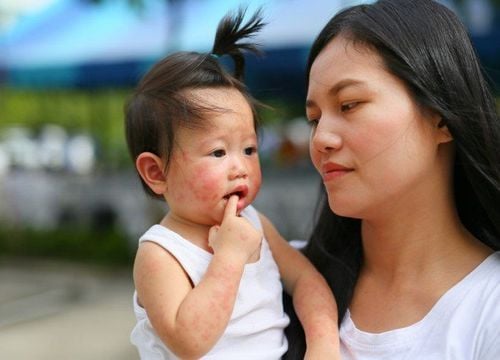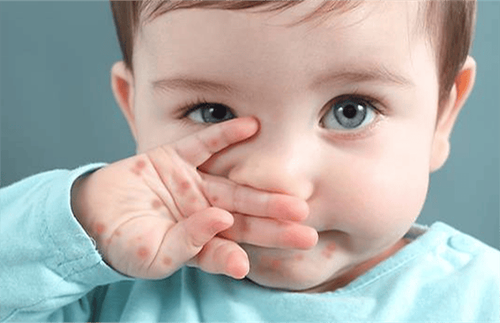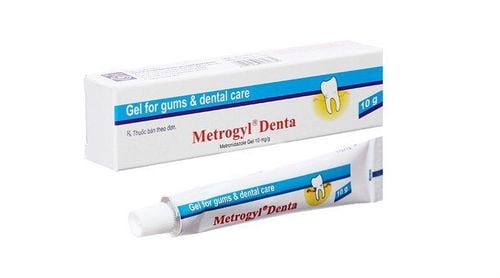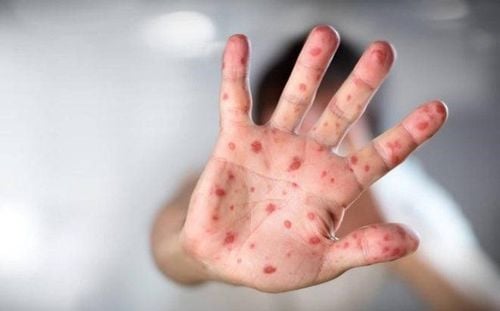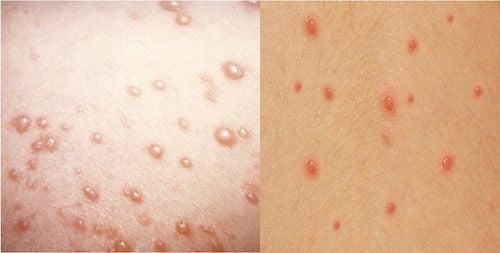This article was professionally reviewed by Doctor Nguyen Thi Nhat - Infectious Disease Specialist - Department of Medical Examination & Internal Medicine - Vinmec Hai Phong International General Hospital.
Hand, foot and mouth disease is a fairly common illness in the community, particularly with children being the group with the highest infection rate. Children with hand, foot and mouth disease, if not properly treated and cared for, will be at risk of periodontal superinfection.
1. Mistakes in caring for children with hand, foot and mouth disease
The most serious issue when children have hand, foot and mouth disease is the appearance of blisters in the mouth that prevent children from eating and drinking. This is also what makes the mothers anxious and worried. Therefore, many mothers try all kinds of interventions aimed at helping the blisters disappear quickly so children can eat. But due to impatience and improper care, many children with hand, foot and mouth disease develop superinfections, causing more pain for the child.
The most common mistake when caring for children with hand, foot and mouth disease is that many parents use milk towels or gauze to clean their children's mouths. When in pain from blisters, children often do not want to swallow saliva, causing bad breath. Because they cannot brush their children's teeth, many mothers use milk towels or cotton gauze soaked in salt water to clean their children's mouths. However, not every baby stays still for mouth cleaning; they usually cry and fuss, increasing the risk of touching and breaking blisters, making ulcers worse and increasing the risk of bacterial and fungal superinfection. This condition causes children to continue experiencing prolonged pain, and their appetite will diminish even further.
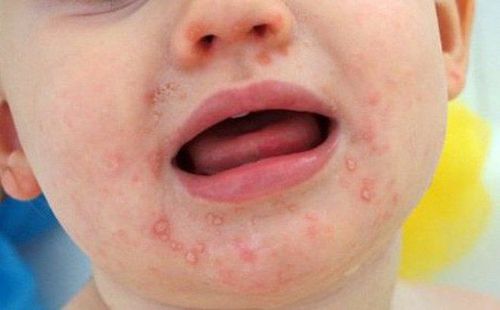
2. Complications of periodontal superinfection in children with hand, foot and mouth disease
Periodontal disease is a chronic inflammatory disease of the gum tissue and supporting tissues of the teeth, caused by bacteria present in dental plaque. Periodontitis usually occurs after a fever episode; as soon as the fever reduces, severe mouth pain occurs. When children smile, it can cause bleeding, with swollen, purple-red gums.
There are many cases where children develop periodontal superinfection due to parents manually cleaning their mouths. Doctors report a shocking number: out of 10 children with hand, foot and mouth disease who develop periodontal superinfection, 9 cases are due to mothers wiping or brushing their children's teeth with gauze.
In reality, when treating children with hand, foot and mouth disease, many doctors have observed a lot of children developing periodontal complications due to this care method by their relatives. Children's mouth ulcers may have healed, but they still cannot eat because both gums are bright red, inflamed, sometimes bleeding, forcing doctors to prescribe additional antibiotics.
Some children also develop oral fungal superinfection due to mouth cleaning with milk towels or gauze that introduces external fungi into the child's mouth. This not only requires children to take antibiotics, but the periodontal inflammation also causes children to continue experiencing pain, and their appetite will diminish even further.
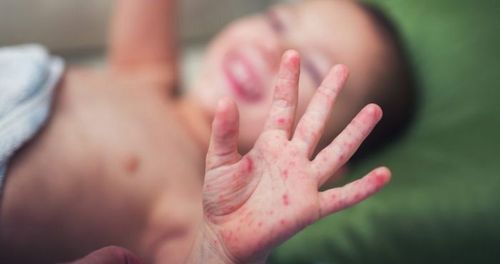
3. Proper care for children with hand, foot and mouth disease to prevent superinfection
The process of caring for children with hand, foot and mouth disease to prevent dangerous complications in children should follow these instructions:
• Only give children fever medication when they have a fever above 38.5°C. Some children may have a mild fever, but if they are in too much pain and unable to eat, fever medication can be used for pain relief according to instructions, every 4-6 hours based on the child's weight. Additionally, topical anesthetics and oral antiseptics can be applied as prescribed by the doctor about 15 minutes before meals to help reduce pain and make eating easier.
• For mouth hygiene, it's best to only use saline solution for children to rinse their mouths after each meal, before bedtime, and after waking up. Parents should not worry too much when seeing their child's mouth smelling bad or tongue swollen and try to "scrape" the white blisters with gauze, as this is very dangerous and can easily lead to hand, foot and mouth disease superinfection. Children's mouths have a self-cleaning mechanism; parents should try to encourage children to drink water, rinse with salt water... to clean their teeth and mouth.
• When the child is in pain, mothers should feed them little by little. Use cooled, liquid foods like porridge, soup, milk... Increase fruit juices rich in vitamin C to boost the child's immunity. However, don't expect children to eat like normal days; food intake will certainly decrease (perhaps less than half of normal), and mothers shouldn't be too anxious or force children to eat as they are in pain, seeing food will make them more fearful and less "cooperative" with mother.
Hand, foot and mouth disease, when properly cared for, usually heals after 3-4 days, and children will return to their normal eating habit.
MSc. MD. Nguyen Thi Nhat has over 10 years of experience in the field of hemodialysis, and in infectious diseases, examining and managing patients with kidney diseases and infectious diseases. Currently working as an Infectious Disease Specialist at the Department of Internal Medicine, Vinmec Hai Phong International General Hospital
To arrange an appointment, please call HOTLINE or make your reservation directly HERE. You may also download the MyVinmec app to schedule appointments faster and manage your reservations more conveniently.





